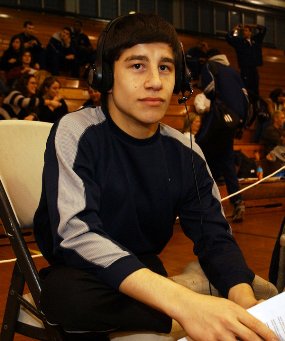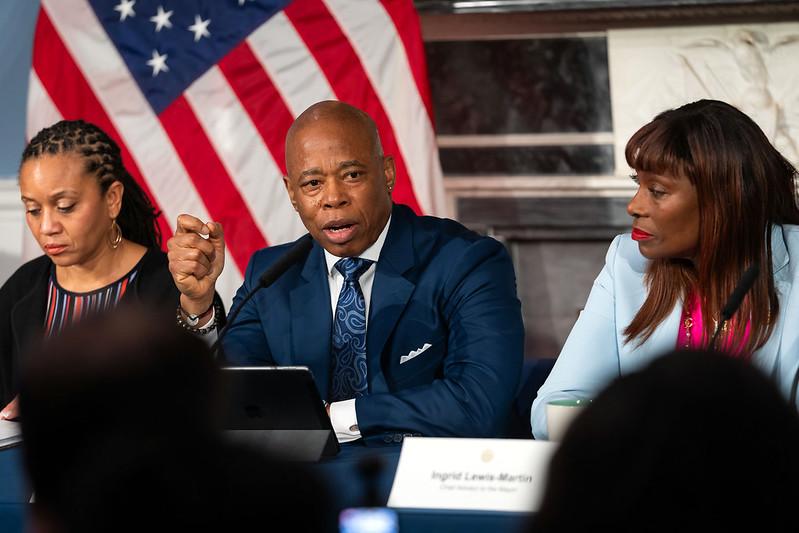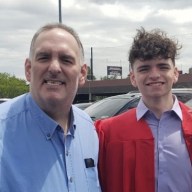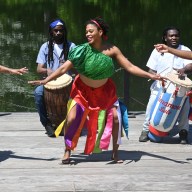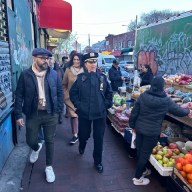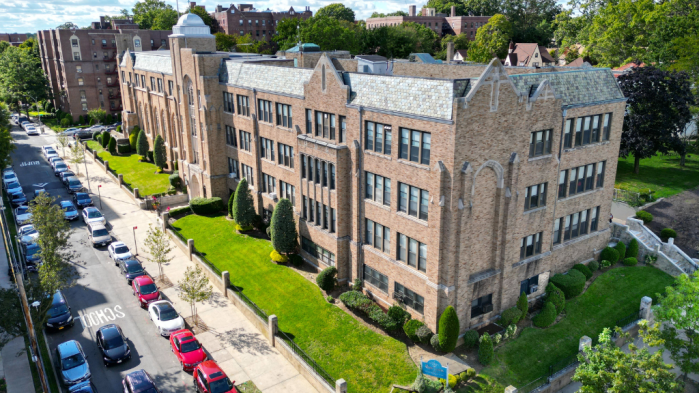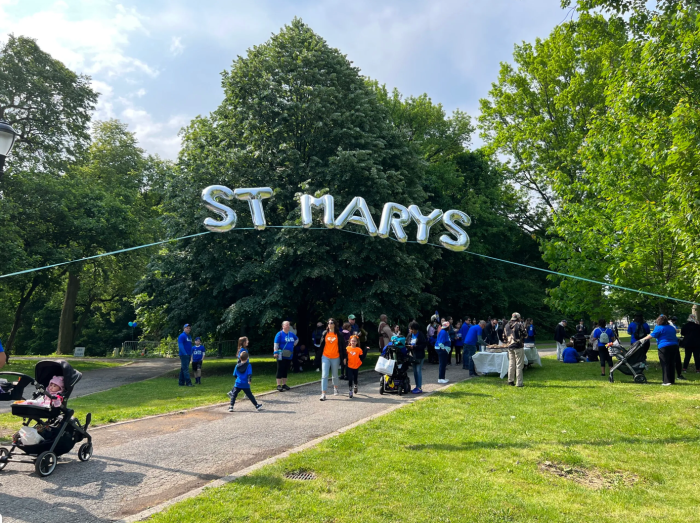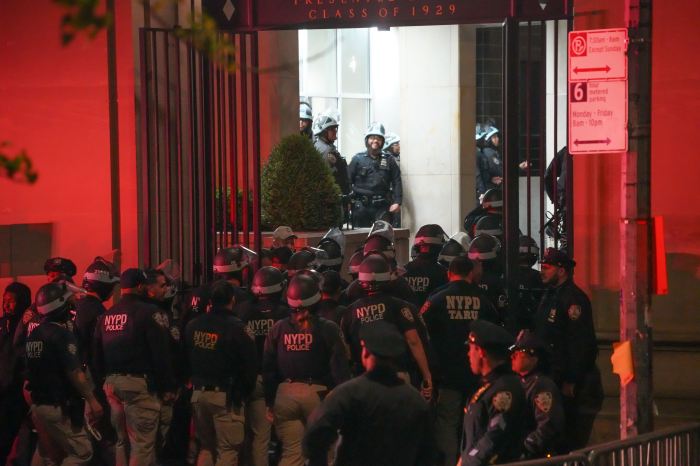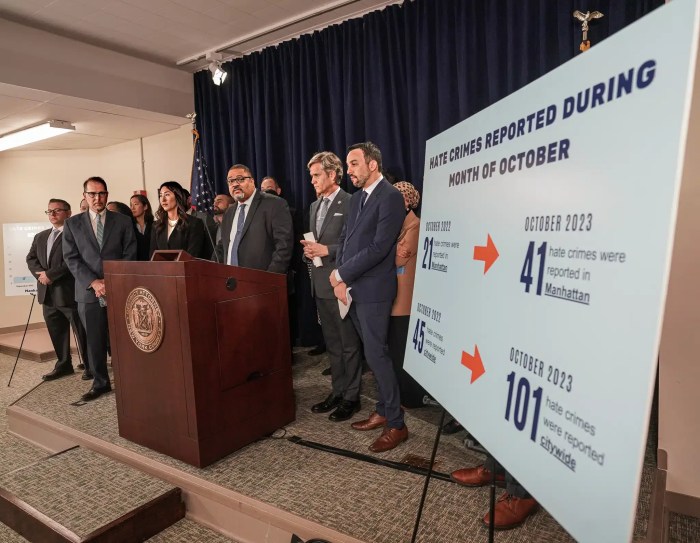BY JOE TREZZA
Deep in the basement of the Queens College Student Union, nestled comfortably in his rotating chair, Alex Garrett gently spins from side to side, talking to the microphone inches from his face like it was someone he’s known for years.
Two floors up and what feels like miles away, it’s pouring outside. The world could be falling into ruin and Garrett wouldn’t care. He’s in the zone. He’s on the air.
“This is WQMC Radio and welcome to the Alex Garrett Sports Hour!” he says, sporting a grin as wide as Wyoming. “Tonight we’re going to discuss the World Series, along with some Jets and Giants football, the NBA lockout situation and some hockey too.”
For the next hour, Garrett, 20, is in his element – in a state of constant one-way chatter, his eyes panning back and forth between the microphone and ESPN.com, his mouth never missing a beat. It isn’t until the show is over and Garrett slides off his chair that you notice anything different about him. Then he stands up on one leg.
Garrett suffers from VATER Association, a series of connected birth defects that affects multiple organ systems. While it can present itself in a variety of ways, VATER is responsible for limb defects in 70 percent of recorded cases, including Garrett’s, who’s missing his left leg because of the disorder and uses forearm crutches and a roller blade to get around.
“There are people who sit around, do nothing and then say, ‘Oh, well, I’m disabled, what can I do?’ I’m not like that at all,” said Garrett. “I see myself as more able than disabled. And that’s how I was raised.”
Born at only four pounds, nine ounces, Garrett was hospitalized for 77 days before being sent home. Over that time, doctors performed multiple surgeries to counter his birth defects.
“That was terrifying,” said Laurie Sue Brockway, his mother. “But from the moment he was born, because of everything he went through, we always thought, ‘Alex is here for a reason.’”
Hired by the Queens College athletic department in the spring of 2010, Garrett does the public address – and occasionally play-by-play – announcing for school volleyball, lacrosse, soccer, baseball and softball games. A fan of all sports, he enjoys working closely with the athletes and being able to contribute to what they are doing on the field.
“I love working here, love being involved on campus,” Garrett said. “When I’m announcing, I feel like I’m part of the team.”
Off the job, Garrett dances in his dorm room, almost always takes the stairs and has even taken batting practice with the QC softball team (there are pictures on Facebook to prove it).
His dance moves have become almost a thing of campus folklore. When the mood strikes, Garrett will pull off his signature move, balancing himself on his crutches and swinging his lower body between them like a pendulum.
“I am amazed that he has so much enthusiasm and will for everything he does, no matter his handicap,” said Jovana Pavlovic, a senior on the women’s volleyball team, whose games Garrett has been announcing for two years.
Garrett’s heart lies in sports and broadcasting, his oldest, truest passions, and he can really chew a listener’s ear off on the subject. He likes to say that he can talk to anybody, whether it’s after class on campus or after a Yankees game on the subway.
“I’ll ask the guy next to me what he thought of the game today,” Garrett said. “I get these people talking to me, and I think that’s what a good reporter does.”
A passionate baseball fan, Garrett has aspired to being a broadcaster ever since 2006, when during a stuffy, ay game in June at Yankee Stadium, he ran into and introduced himself to Bob Wolff, the legendary broadcaster and longtime voice of all things Madison Square Garden.
Garrett, a ninth grader at the time, struck up a conversation telling Wolff of his interest in broadcasting. Wolff gave Garrett his phone number and told him to call him if he ever wanted announcing tips.
“The more I spoke to him the more I admired his tenacity,” said Wolff. “He really impressed me how hard he worked to accomplish his goals. He had the ability to do it, had the desire to do it, had all the qualities that one needs to be a sportscaster. I became a rooter of his right away.”
During their sessions together, Wolff used his 60-plus years of broadcasting experience to mentor Garrett. The two worked on techniques such as pace, pronunciation of words and diction and excitement levels during big plays.
Garrett sees the work he does at Queens as needed training for what he will face in the media industry after college. Currently an upper sophomore, he plans to be working for the athletic department and at the radio station for at least four more semesters.
“College should be a launching pad for your success, and thats how I see Queens,” he said. “This is a launch pad for me to do something bigger.”
After he’s done with school, Garrett plans to take his broadcasting talent to what he calls the next level, doing “something big” in the field.
“In this business, not a lot of people get a chance,” said Wolff. “You make a chance for yourself by the work you do, by being at the right place at the right time and getting to know some people who will help you along the way. Alex has done all the requirements.”
Like his mentor, Garrett is confident in his ability to succeed in broadcasting after life at Queens.
“As long as I get my foot in the door – no pun intended – it will all work out,” he said.

